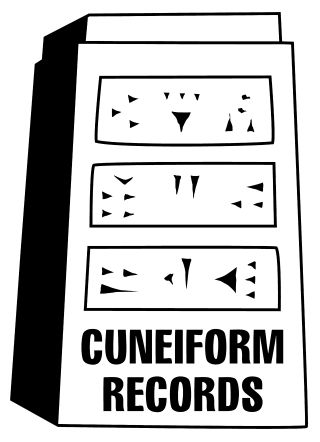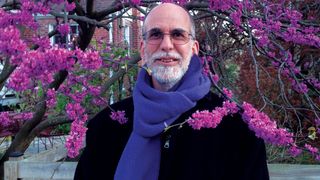“I love fucking with people’s expectations,” laughs Steve Feigenbaum, founder of Cuneiform Records. He’s responding to Prog’s observation that the label’s latest signing, the pop-tinged Bent Knee, is almost mainstream by Cuneiform standards.
Since Feigenbaum founded the label in 1984, he’s curated a roster of unconventional acts that reflect his idiosyncratic music tastes. The independent label draws from the fringes of jazz (Isotope, Cosmologic), progressive rock (Deus Ex Machina, Djam Karet), electronica (Peter Frohmader, Heldon), and experimental collectives (Chrome Hoof, Guapo).
“We do a lot of arty music in a lot of genres,” says Feigenbaum. “I’m trying to have the most interesting label possible while still paying the bills.”
In large part, those expenses have been paid through rarity releases by Canterbury Scene acts such as Soft Machine, National Health, Gilgamesh, Nucleus, Phil Miller and Hugh Hopper.
“Robert Wyatt has been really nice and supportive for 30 years or so,” says Feigenbaum, who lives in Maryland. “Those are historically our best sellers because I don’t have to establish why they’re important.”
More recently, Feigenbaum has become enthusiastic about the Swiss group Sonar, who released the 2015 album Black Light on the label.

“They aren’t a retro band,” raves the Cuneiform CEO. “There’s two guitars, bass, and drums. There are no effects whatsoever. I don’t think there are any pedals on the guitars. They have a distinctive minimal, but heavy, rock sound. You can draw a line from King Crimson to them, but they don’t sound like King Crimson. It’s all about tension and release, though it’s more tension than release. I think of Sonar as ‘anxiety music’ – I mean that in a positive way.”
Feigenbaum’s exuberant quest to discover unusual bands led him to Bent Knee.
“I saw they were playing in Baltimore, which is relatively close to me,” he says. “The sound in the place was awful, but I could tell that if you stripped away the horrible [sound system] they had to go through, that they were pretty amazing. I could tell that Courtney could really sing. Ben is an amazing guitar player, although he holds it back — they all hold it back in service to the song. There was taste and restraint, which I liked. One of the things about them that is most interesting to me, which is probably the thing that people notice the least, is Vince [Welch]. How many acts have someone on stage with the band processing sound as a kind of instrument?”
Bent Knee’s professionalism suits the CEO’s hands-off approach of allowing artists extraordinary creative freedom. He didn’t hear Say So until Bent Knee presented the finished recording to him.
“I was very impressed, and I kind of expected to be. By that time is obvious that they knew what they are doing.”

